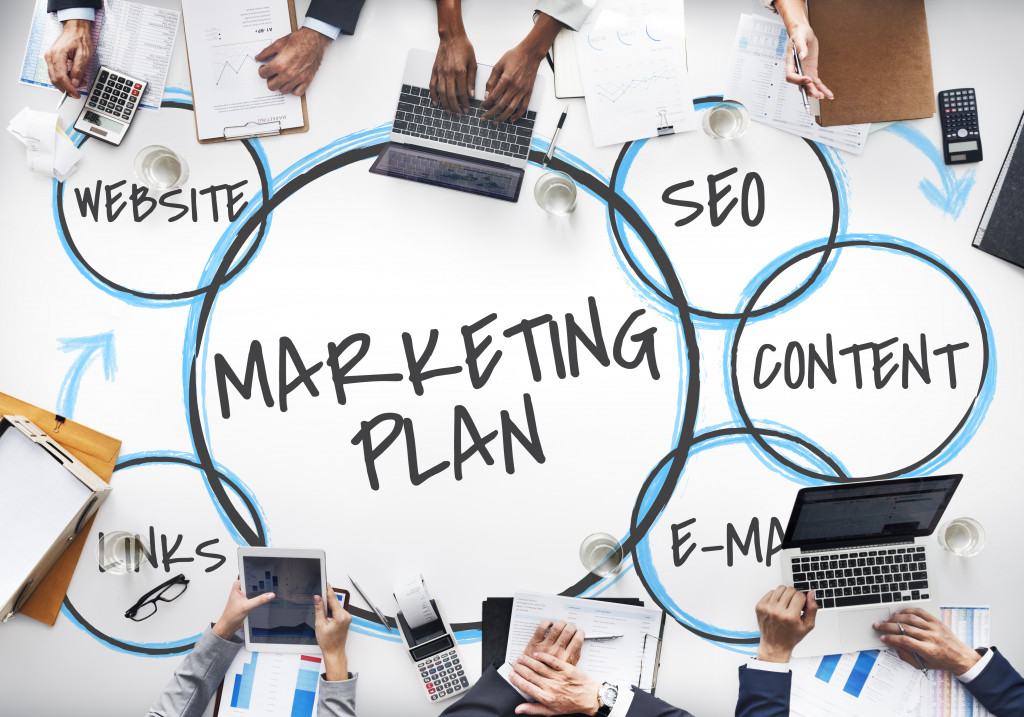-
- Starting a manufacturing company requires strategic planning, prioritizing business capital, essential resources, and effective marketing.
- Securing sufficient business capital is critical, with multiple potential sources, including loans, investors, and crowdfunding.
- Essential resources include machinery, human resources, raw materials, and technology, each having a unique role in production.
- Digital marketing strategies, like SEO, content marketing, and social media, are critical for manufacturers to reach a global audience.
Starting a manufacturing company holds immense potential for economic growth and employment generation. Manufacturers contributed $2.33 trillion to the U.S. economy. The sector also accounts for a significant share of the labor market, with over 12.75 million manufacturing jobs reported in the U.S., comprising 8.5% of the total workforce. The spillover effects are substantial, too, with every $1 spent in manufacturing adding $1.89 to the economy, the highest multiplier effect of any economic sector. These statistics underscore the vital role of manufacturing in bolstering financial stability and promoting job creation.
However, manufacturing can be ideal for long-term benefits, but it also requires a strategic approach to ensure sustained success. In this document, we’ll outline some key priorities that should be considered before starting a manufacturing company.
Business Capital

Securing sufficient business capital is the cornerstone of any successful manufacturing startup. Adequate funding fuels all operational aspects, from procuring raw materials and purchasing essential machinery to hiring skilled labor and investing in quality control measures. An ample financial reserve can also be a safety net, cushioning your business against unforeseen expenses or market fluctuations.
There are several ways to secure capital for your manufacturing business. Personal savings and loans from friends and family can be one starting point. Banks and other financial institutions also offer business loans, albeit subject to certain conditions and credit assessments. Alternatively, you might consider seeking investment from angel investors or venture capitalists.
Crowdfunding is another increasingly popular method, allowing you to tap into funds from a broad base of investors. Lastly, grants and incentives provided by government agencies or industry bodies can also be a viable source, especially for businesses in specific sectors or regions. Regardless of the source, developing a detailed and realistic business plan is crucial to convince potential investors of your business’s viability and profitability.
Essential Manufacturing Resources
Securing the right manufacturing resources is as critical as obtaining business capital. These resources are the backbone of your operation, directly influencing your productivity, efficiency, quality, and, ultimately, profitability. Substantial thought and planning should be invested in this area to ensure your manufacturing operation’s long-term sustainability and success.
Machinery and Equipment
The heart of any manufacturing setup is its machinery and equipment. These assets determine the scale of your production, the efficiency of your processes, and the quality of your output. Invest in reliable, high-quality machinery that aligns with your production needs and goals. Consider current and future capacity requirements, technological advancements, maintenance needs, and energy efficiency.
Human Resources
People are the driving force behind your manufacturing operation. From skilled workers on the production floor to managers overseeing operations and quality control, the right team can dramatically enhance your productivity and product quality. Invest in hiring qualified employees and focus on continual training and development to keep your workforce adept with the latest industry trends and techniques.
Raw Materials
Even the best machinery and workforce cannot produce quality products without suitable raw materials. Ensure you have reliable suppliers who can provide high-quality materials that meet your specifications. Consider factors such as supplier reliability, material costs, transportation logistics, and the environmental impact of your sources.
Technology
Technology plays a critical role in modern manufacturing in an increasingly digital world. Advanced software can streamline operations, improve efficiency, reduce waste, and enhance quality control. Consider investing in technologies like Manufacturing Execution Systems (MES), Enterprise Resource Planning (ERP) systems, or automation and robotics.
Marketing Services

Marketing is a crucial component of a successful manufacturing operation. The vehicle drives your products from the production line to the customer, simultaneously creating brand awareness, generating leads, and, ultimately, driving sales.
In today’s digital age, marketing transcends traditional channels and primarily operates online. Digital marketing for manufacturing companies is especially crucial as it allows manufacturers to reach a global audience, targeting potential customers actively seeking the solutions they provide.
Effective digital marketing strategies for manufacturing companies include search engine optimization (SEO), content marketing, social media marketing, and email marketing. SEO improves your website’s visibility in search engine results, making it easier for potential customers to find you. Content marketing involves creating and sharing valuable content to attract and engage your audience, positioning your company as an industry leader. Social media platforms can help you connect with your audience more personally, while email marketing allows for direct communication with interested customers.
Moreover, digital marketing provides valuable data insights, allowing manufacturers to understand their customers better and tailor their offerings to meet market needs. It also facilitates customer engagement and feedback, which can be critical in product development and improvement.
Final Thoughts
Starting a manufacturing company is an exciting endeavor with significant success and growth potential. However, it requires careful planning and prioritizing to ensure long-term sustainability. Adequate business capital, essential resources, and effective marketing strategies are some key priorities that manufacturers should focus on to achieve success in today’s competitive landscape. By implementing these priorities, you can set your manufacturing business up for success.







